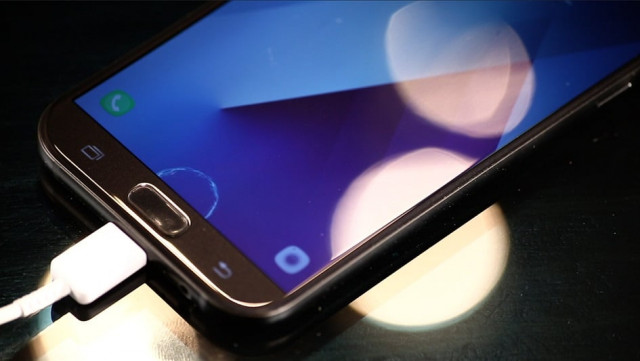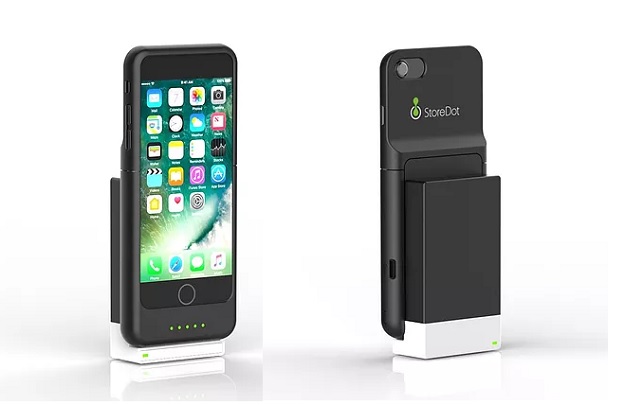New smartphones may charge in just five minutes
Smartphones that charge in five minutes 'can be available next year'

StoreDot first revealed its battery technology at CES 2015. PHOTO: EXPRESS
The technology developed by Israeli start-up StoreDot was first showcased at the CES tech show in 2015 and is expected to go into production in 2018.
Chief executive of StoreDot, Doron Myersdorf, told BBC the batteries contained materials that allowed for 'non-traditional' reactions and an unusually fast transfer of ions from an anode to a cathode - the electrical process that charges a battery. "We will charge a smartphone in five minutes," he said.
Lithium-ion battery inventor creates fresh technology for fast-charging batteries
Myersdorf added that the technology was in pilot production at two Asian battery makers and that "mass production" was expected to commence in the first quarter of 2018.
However, Ben Wood, a technology analyst at CCS Insight, remains skeptical of the company’s claim to roll out the product as early as next year. Wood, however, does admit if the battery worked as planned, it could be a game changer for the smartphone industry. "Taking risks with battery technology can bite you," he said. "I would say that experience has taught me to always remain skeptical. Let's see if it happens would be my view."
 Photo courtesy: StoreDot
Photo courtesy: StoreDotThe analyst pointed out potential design flaws such as large amounts of heat generated when charging that can impact the performance of the battery.
Other manufacturer are also finding ways to crack the "battery problem". These include chip maker Qualcomm that announced its Quick Charge 4 system last year which offers five hours of battery life following a five-minute charge.
Samsung banking on Sony to make sure Galaxy S8 batteries won’t explode
StoreDot also unveiled an electric car battery that charges in five minutes at a tech show in Berlin this week. "We don't have contracts but we are working with car companies to develop the battery - this will take another three years or so to be on the road," said Myersdorf.
In comparison, Tesla’s Supercharger technology takes 75 minutes to fully charge the battery in one of the firm's electric cars. A 30-minute charge would then allow for 170 miles of range with the same system. "Consumers want charge times similar to filling up their cars at a petrol station," said Joe Kempton, an analyst at Canalys.
Howeve,r real applications would depend on "whether the technology can be produced at a large enough scale" and at the right cost, he added.

















COMMENTS
Comments are moderated and generally will be posted if they are on-topic and not abusive.
For more information, please see our Comments FAQ